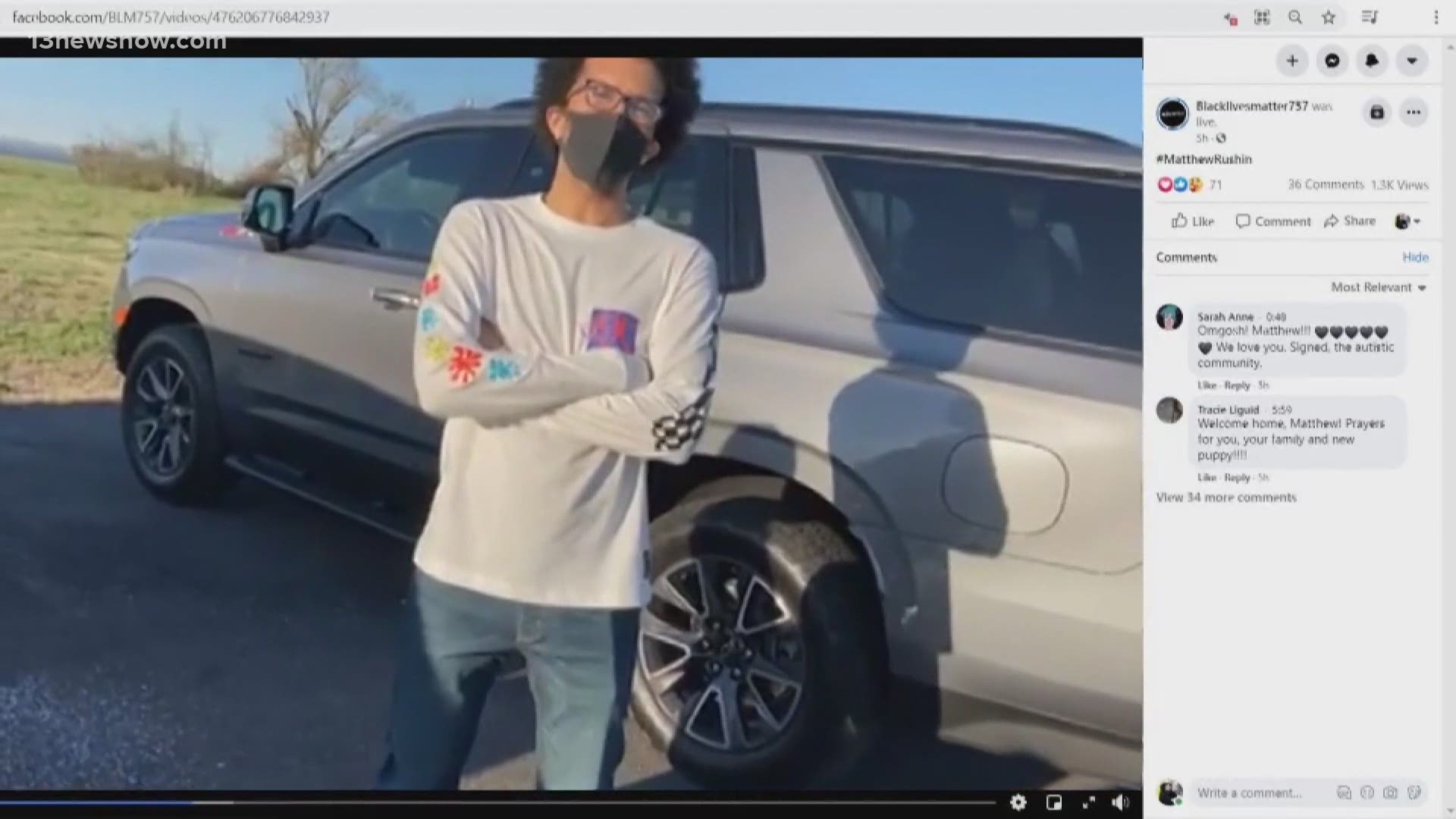VIRGINIA BEACH, Va. — A former ODU student who was convicted on charges stemming from a head-on crash in Virginia Beach was released Monday after his sentence was commuted by Governor Ralph Northam.
Matthew Rushin, 22, was freed from prison Monday morning after spending part of a 10-year sentence behind bars for a crash in 2019 that severely injured a 77-year-old man.
Danna and George Cusick were on First Colonial Road when Rushin, behind the wheel of another car, crossed the median and crashed into them.
Rushin pleaded guilty to two counts of malicious wounding and one felony hit-and-run count. However, shortly after his plea, a huge effort started to prove that Rushin was unfairly treated by authorities the night of his arrest which attracted national attention. This came about after Rushin's mother noted that her son is autistic and was not given clinical help after he was arrested.
His sentence was reduced thanks to a conditional pardon that Governor Northam ordered for Rushin in November 2020. That pardon reduces his sentence and aligns it with sentencing guidelines for his convictions.
The BlackLivesMatter757 group caught Rushin on video after he was released.
“I didn’t sleep at all last night because I was wondering if they were actually going to call me," Rushin said in the video. “Like even now... I think I just need to get home and spend a week or two to just kind of, you know. Being in there, it’s a lot.”
Family, friends, and supporters are seen in the video asking Rushing what he'd like to do now that he's free.
He told them, he'd like to see his pet bird, play the piano, and spend time outdoors.
“The past two years of my life I’ve had to re-examine how I live my life," he said. "I guess I could say the past two years have amounted to the man you see now.”
Court documents reveal that a witness told police Rushin made statements that he was trying to commit suicide when the crash happened.
Rushin's release hinges upon his compliance with a set of rules laid out in the conditional pardon by Northam. He cannot drive, own a firearm or contact the victims or their family. He also must be supervised by a parole officer for the next five years.
If he violates any of these conditions, he risks being sent back to prison.

